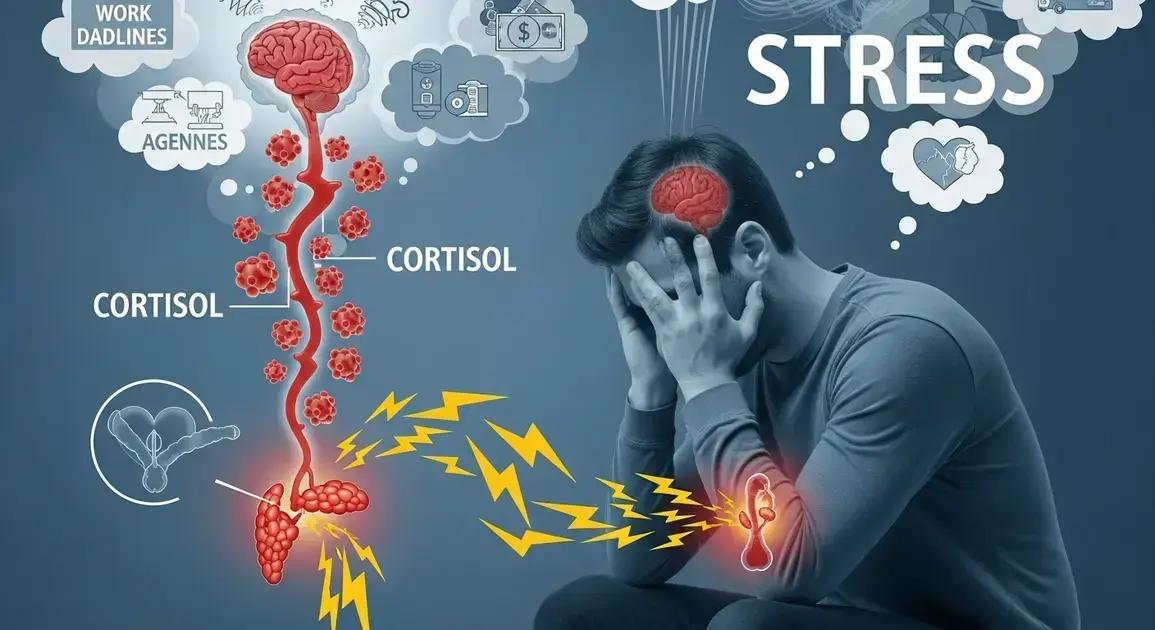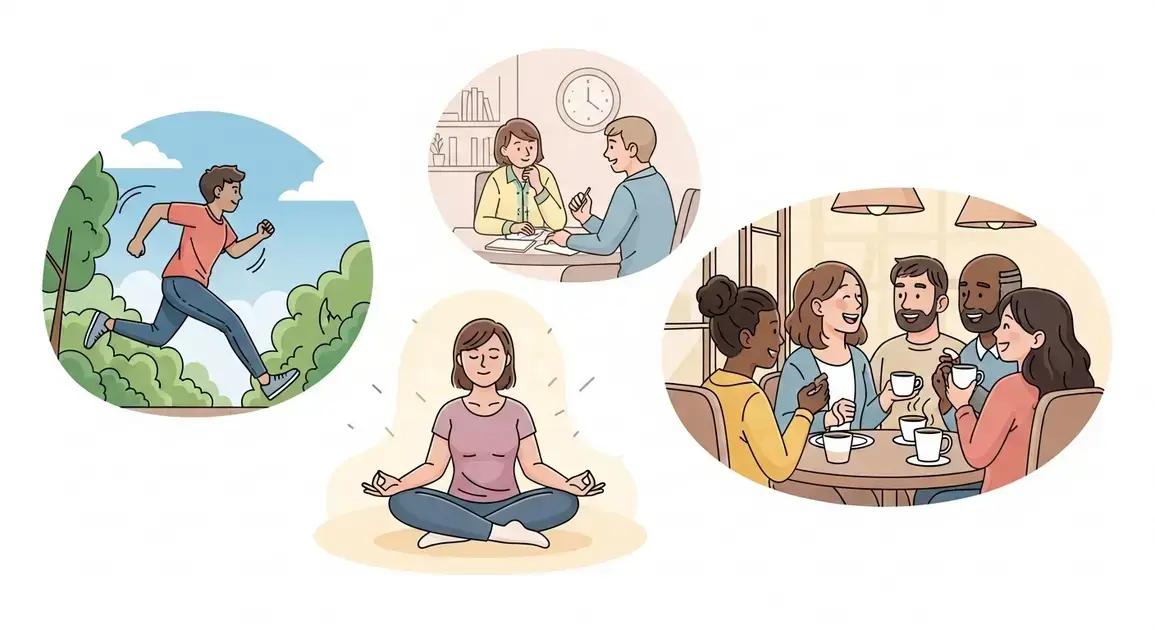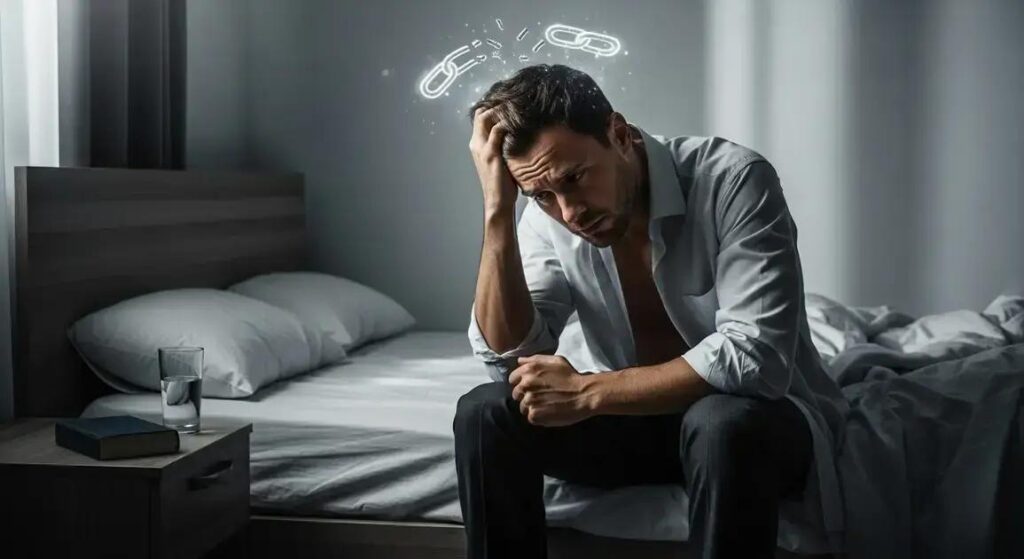O estresse pode causar disfunção erétil ao afetar tanto a saúde física quanto a psicológica, interferindo nos processos necessários para uma ereção. Estratégias como exercícios, mindfulness e apoio profissional podem ajudar a aliviar o estresse e melhorar a função erétil.
Can stress cause erectile dysfunction? This critical question touches on how emotional and mental health can directly influence physical well-being. Research shows that high-stress levels can lead to ED, impacting relationships and self-esteem. In this article, we’ll delve into the intricate relationship between stress and erectile dysfunction, exploring scientific findings, coping strategies, and when to seek professional help for this common issue.
Understanding Erectile Dysfunction and Its Causes
Erectile dysfunction (ED) is a condition affecting men of various ages, characterized by the inability to achieve or maintain an erection sufficient for sexual intercourse. This condition can arise from a variety of causes, both physical and psychological.
Common Physical Causes of Erectile Dysfunction
Many health conditions can contribute to ED, making it essential to understand these factors. Cardiovascular diseases can restrict blood flow, while diabetes can damage nerves and blood vessels essential for erection. Hormonal imbalances, such as low testosterone, also play a significant role.
Psychological Factors Affecting Erectile Function
In addition to physical causes, psychological factors are significant contributors to erectile dysfunction. Stress, anxiety, and depression can profoundly affect sexual performance. A man may become anxious about his ability to perform, creating a cycle of stress that exacerbates the situation.
Lifestyle Choices Impacting ED
Certain lifestyle choices can increase the likelihood of developing erectile dysfunction. Smoking, excessive alcohol consumption, and lack of physical activity can all contribute to ED. These factors can lead to poor cardiovascular health, impacting blood flow to the penis.
Importance of Communication
Understanding erectile dysfunction also requires open communication. Discussing concerns with partners can reduce anxiety and improve intimacy. It’s vital to recognize that ED is a common issue and can be addressed through various means, including counseling and medical help.
Recognizing the causes of erectile dysfunction is the first step towards finding effective solutions. Understanding both the physical and psychological components can help men take proactive steps in managing their sexual health.
The Impact of Stress on Erectile Function

Stress has a significant effect on erectile function, playing a critical role in the development of erectile dysfunction. When a person experiences stress, the body responds by releasing hormones like adrenaline and cortisol. These hormones can interfere with the natural processes required for achieving an erection.
Physiological Effects of Stress
During times of stress, the body enters a state of fight or flight. Blood flow is redirected from non-essential functions like sexual arousal towards vital organs and muscles. This physiological response can hinder the ability to achieve an erection, as blood flow to the penis is reduced.
Psychological Impact of Stress
Additionally, stress affects mental health. Constant worry or anxiety can lead to negative thoughts about sexual performance. This creates a cycle where fear of ED leads to more stress, which further hampers erectile function. It’s essential to address both the mental and physical aspects of stress.
Stress and Relationship Issues
Stress does not only impact the individual; it can also create tension within relationships. Misunderstandings and communication breakdowns may arise, which can compound feelings of inadequacy or anxiety about sexual interactions. Open communication with partners is vital to alleviate some of this stress.
Recognizing Stress as a Factor
Recognizing the impact of stress on erectile function is crucial. Men experiencing stress-related ED should consider discussing their concerns with a healthcare professional who can offer support and solutions. By addressing the stress directly, it may be possible to improve overall erectile function.
Scientific Studies Linking Stress and ED
Many scientific studies have explored the connection between stress and erectile dysfunction (ED). Research indicates that psychological and emotional stress can negatively impact a man’s ability to achieve and maintain an erection. One prominent study published in the Journal of Sexual Medicine found that men with elevated stress levels were more likely to experience symptoms of ED compared to those with lower stress levels.
Physiological Explanations
The body’s response to stress includes releasing hormones such as cortisol and adrenaline, which can constrict blood vessels and reduce blood flow to the penis. Another study reported in The American Journal of Cardiology highlighted that chronic stress can contribute to vascular problems, further exacerbating ED.
The Role of Mental Health
Mental health conditions, often linked to high stress, are also critical factors in the development of ED. A study from Psychosomatic Medicine established that anxiety and depression can significantly impact sexual function. It was found that men experiencing these conditions often reported higher incidences of erectile issues.
Stress and Lifestyle Factors
Moreover, stress can lead to unhealthy lifestyle choices such as poor diet, lack of exercise, and substance abuse, which can also contribute to erectile dysfunction. Research published in Urology showed that men who managed stress effectively through exercise and healthy eating habits were less likely to report ED.
Comprehensive Studies on Stress and ED
A comprehensive review in the European Urology Review concluded that managing psychological stress plays a vital role in the treatment of erectile dysfunction. The review suggested that addressing stress through therapy, lifestyle changes, and support can lead to improvement in erectile function.
Coping Strategies for Stress Relief

Coping with stress is essential for maintaining overall health and well-being. Implementing effective strategies can help reduce stress and improve quality of life. Here are some helpful coping strategies for stress relief.
Practice Mindfulness and Meditation
One effective way to cope with stress is through mindfulness and meditation. These practices encourage you to focus on the present moment, which can reduce anxiety. Just a few minutes of daily meditation can help calm your mind and lower stress levels.
Exercise Regularly
Physical activity is another proven method for relieving stress. Engaging in regular exercise, such as walking, running, or yoga, releases endorphins that boost mood and reduce feelings of tension. Aim for at least 30 minutes of exercise most days of the week.
Stay Connected with Others
Social support is important for coping with stress. Talk to friends or family members about what you’re feeling. Sharing your worries can lighten the emotional load and help you gain perspective. Joining support groups or community activities can also provide a sense of belonging.
Establish Healthy Routines
Developing a healthy daily routine can create a sense of stability. Make sure to set aside time for meals, sleep, and relaxation. Good sleep hygiene, such as going to bed and waking up at the same time each day, can greatly enhance your ability to cope with stress.
Seek Professional Help
If stress becomes overwhelming, do not hesitate to seek help from a mental health professional. Therapy can provide valuable tools for managing stress and addressing any underlying issues. Professional guidance can lead to effective coping strategies and improved emotional health.
Seeking Help: When to Consult a Professional
Understanding when to seek help from a professional is crucial, especially regarding stress and its impact on erectile dysfunction (ED). Here are some guidelines on when consulting a healthcare provider is a good idea.
Persistent Symptoms
If you experience symptoms of erectile dysfunction consistently over a few weeks, it may be time to reach out to a healthcare professional. Occasional difficulties are normal, but if the problem persists, a doctor can help identify underlying issues.
Impact on Relationships
When stress leads to erectile dysfunction that strains relationships, it’s essential to seek help. Effective communication with a therapist can facilitate discussions between partners, reducing tension and improving intimacy.
Difficulty Managing Stress
If you find it challenging to cope with stress and feel overwhelmed, consider consulting a mental health professional. They can provide strategies for managing stress and preventing its effects on sexual health.
Signs of Depression or Anxiety
Signs of depression or high anxiety are indicators that professional help is necessary. Symptoms such as persistent sadness, loss of interest in activities, or excessive worry may not only affect your mental health but also lead to issues like ED.
Exploring Treatment Options
Consulting a doctor can also help explore various treatment options for erectile dysfunction. Professional guidance may include medication, therapy, or lifestyle changes tailored to your specific needs.
In conclusion: Understanding and addressing stress is vital
Understanding the intricate connection between stress and erectile dysfunction is crucial for many men facing these challenges. By recognizing how stress affects both physical and psychological health, individuals can take proactive steps towards improvement.
Implementing coping strategies, maintaining open communication, and knowing when to seek professional help are essential for managing stress effectively. The journey to better erectile function often involves not just physical health but also mental well-being.
By supporting each other and seeking appropriate help, men can work towards healthier relationships and improved sexual health.
FAQ – Perguntas frequentes sobre estresse e disfunção erétil
O estresse realmente pode causar disfunção erétil?
Sim, o estresse pode interferir nos processos físicos e psicológicos necessários para obter e manter uma ereção, contribuindo para a disfunção erétil.
Quais são as causas físicas da disfunção erétil?
As causas físicas incluem condições como diabetes, doenças cardiovasculares, e problemas hormonais que afetam o fluxo sanguíneo e a função nervosa no pênis.
Quais estratégias posso usar para aliviar o estresse?
Estratégias eficazes incluem a prática de mindfulness, exercícios regulares, manter conexões sociais, desenvolver rotinas saudáveis e buscar apoio profissional se necessário.
Quando devo procurar ajuda profissional para a disfunção erétil?
Se a disfunção erétil persistir por várias semanas ou se estiver afetando negativamente seus relacionamentos ou saúde mental, é importante consultar um profissional.
Como o exercício ajuda a reduzir o estresse?
O exercício libera endorfinas que melhoram o humor, diminuindo a ansiedade e o estresse, além de melhorar a saúde física geral, o que pode beneficiar a função erétil.
Estressar-se pode afetar meu relacionamento sexual?
Sim, o estresse pode causar tensões emocionais que afetam a comunicação e a intimidade em relacionamentos, potencialmente agravando problemas de disfunção erétil.













